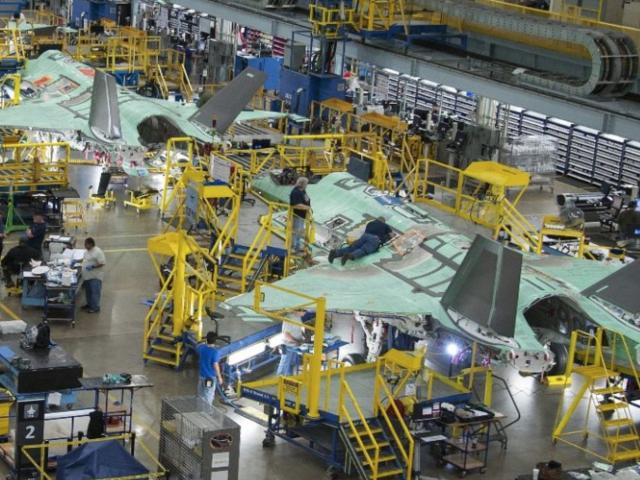In recent times, the situation in Gaza has ignited discussions in the United States about the extensive military support and assistance it provides to Israel. The support is not only a testament to the strong bilateral ties but also a significant aspect of America's foreign aid strategy post-World War II, but it is often misunderstood. Unlike most the aid the U.S. doles out, the earmarks given to Israel are beneficial to America on several fronts, and are not merely handouts where nothing is gained in return.
The focus of the current support Israel gets is a 10-year Memorandum of Understanding (MOU) signed in 2016 between the U.S. and Israel, spanning from 2018 to 2028, amounting to $38 billion in military aid. This package includes $33 billion in grants for military equipment purchases and $5 billion for missile defense systems, emphasizing that the aid is allocated as credits for American-made equipment. This approach not only sustains American jobs but also fosters a mutually beneficial technological partnership, wherein the U.S. benefits from Israeli technological advancements.
Unlike the billions in humanitarian aid that is given for the people of Gaza, the military aid that the United States gives to Israel every year has a net positive effect on the US economy.
— Sphynx (@sphynxbtc) April 4, 2024
Israel's acquisition of advanced weaponry, notably the F-35 Joint Strike Fighter, exemplifies the strategic advantage derived from U.S. assistance. Israel, a pioneer in the adoption of this state-of-the-art fighter jet, has integrated its own technological expertise into the F-35’s development, showcasing a reciprocal exchange of innovation. Similarly, the Iron Dome defense system, a critical asset developed following conflicts with Hezbollah, illustrates a successful U.S.-Israel collaboration that protects civilian lives from rocket attacks while also generating significant revenue for the U.S. through international sales. This venture capital-like investment in defense technologies extends to other systems like "David's Sling," further underlining the dynamic partnership between the two nations.
In many cases, the United States serves as manufacturer of the Israeli-born technology, which boosts employment in both the production facilities and of the vendors used for the source material needed to manufacture the technology. In addition, under the various agreements for the Israeli technology projects that is funded by America, the patents are jointly held and America earns from the foreign sales of the technology.
If you actually knew, you would not be bringing up the "aid".
— Jay Engelmayer (@jengelmayer) April 7, 2024
In case your attention span is limited and you choose not to read or investigate - the "aid" Israel gets has a NET POSITIVE effect on the US economy - it creates jobs, it helps keep America's military at the top and…
In addition to the 2016 MOU, after Hamas launched their assault on Israel October 7th, 2023 and the next day Hezbollah began bombarding Israel's north, the U.S. government, under President Joe Biden, proposed a significant increase in support for Israel through a $95 billion supplemental spending bill, highlighting continued financial backing in addition to efforts in the United Nations. Most of the money in that bill was ermarked for Ukraine - and while it passed the Senate, it is still being held up in the House of Representatives. Historically, the U.S. has exercised its veto power to shield Israel from resolutions deemed unfavorable, although there has been a recent shift with the U.S. abstaining from a vote on a cease-fire resolution—a nuanced change in its usual stance.
Furthermore, the U.S.'s diplomatic maneuvers, particularly under the Trump administration, have reinforced its support for Israel. This includes withdrawing from international bodies perceived as critical of Israel, such as the U.N. Human Rights Council and UNESCO, and the landmark recognition of Jerusalem as Israel's capital, a move that underscored the deep-seated political and religious complexities of the region.
After an Israeli strike killed 7 aid workers in Gaza, calls from some Democrats to put conditions on US aid to Israel are growing louder. On @InsidePolitics, @RepRitchie says he “respectfully disagrees” and wants the US to remain "fundamentally supportive" of Israel. pic.twitter.com/xBsYCWT3eI
— Inside Politics (@InsidePolitics) April 5, 2024
This enduring alliance, characterized by significant military aid and diplomatic support, reflects a multifaceted relationship that extends beyond mere financial transactions. It embodies a strategic partnership rooted in shared values, technological exchange, and mutual benefits that highlight the complexity and depth of U.S.-Israel relations amidst the challenging dynamics of Middle Eastern politics.


